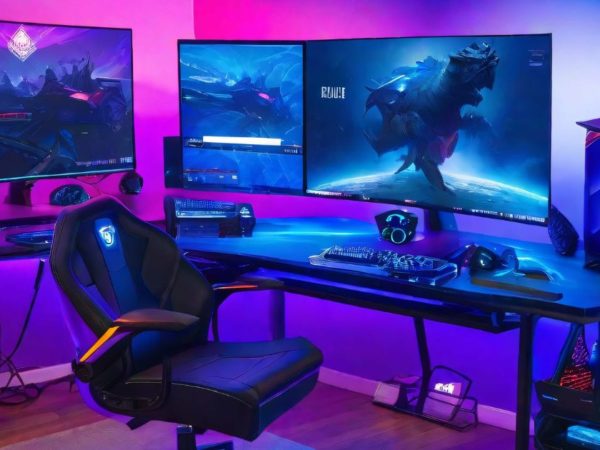Staying safe online is something which every web user should take into account whenever they use a network-enabled device. It is arguably even more important for online gamers, since whatever your preferred genre of interactive entertainment, there are serious threats out there which could spoil your fun and leave you at the mercy of Cybercriminals.
With that in mind, here are a few pieces of advice that you should take onboard, whether you are a fan of blasting baddies with your buddies in Call of Duty or playing online slots like the ones on this site.
Keep private info to yourself
It is an oft-repeated mantra that you should never give out personal information online, and this is particularly true when you are playing multiplayer games against other people who you do not know in person.
Even something as innocent-seeming as giving a stranger your email address when playing a game could lead to all sorts of problems, since hackers can exploit even the smallest pieces of private data and turn it against innocent victims.
Don’t cheat
While the vast majority of online gamers are content to rely on their own skills to win, there is a small but not insignificant subset of players who resort to hacks to get the upper hand.
This is not just bad form from a competitive standpoint, and a practice that could get you banned from playing a wide variety of online games, but it could also leave you at the mercy of malicious third parties. This is because there is a close link between gaming cheats and malware, which means that many programs designed to manipulate the way online games work can also be infected with dangerous code that leaves users exposed to further mischief.
It is better to resist the temptation to take a shortcut to success and instead just practice more to get better at the games you love.
Avoid public networks
While gaming over your home internet connection should be fairly secure, you are far more likely to have your data stolen and your device compromised if you are playing over a public network. This could be a Wi-Fi hotspot in a bar or cafe, and it could even be a network in a workplace or another context where lots of different users are sharing the same infrastructure.
Bear in mind that even if you are using a VPN to connect via a public network, it is still possible for others to see the traffic that your device is generating, so it is better to stay safe and only play over networks you can trust, rather than taking any unnecessary risks.
Use a firewall
Another temptation which online gamers may face is that of choosing to deliberately disable or entirely uninstall certain apps and processes that are normally running on their devices in order to squeeze the most possible performance out of them. This is relevant in a number of e-sports titles, where frame rates and reaction times can make a big difference to the outcome of matches.
However, even if it may seem like a good idea to put security software on pause while you are playing, or to turn off your firewall because you fear it will interfere with your internet connection or hamper certain important processes, this is definitely not worthwhile from a security perspective.
Cybercriminals are always working on more sophisticated ways of targeting their victims, so it is vital to avoid giving them any kind of weak link in your chain of security to whittle away at. Of course not all security solutions are created equal, and there are light weight options designed for gamers out there, so do some research and you should be able to get the best of both worlds between protection and performance.



